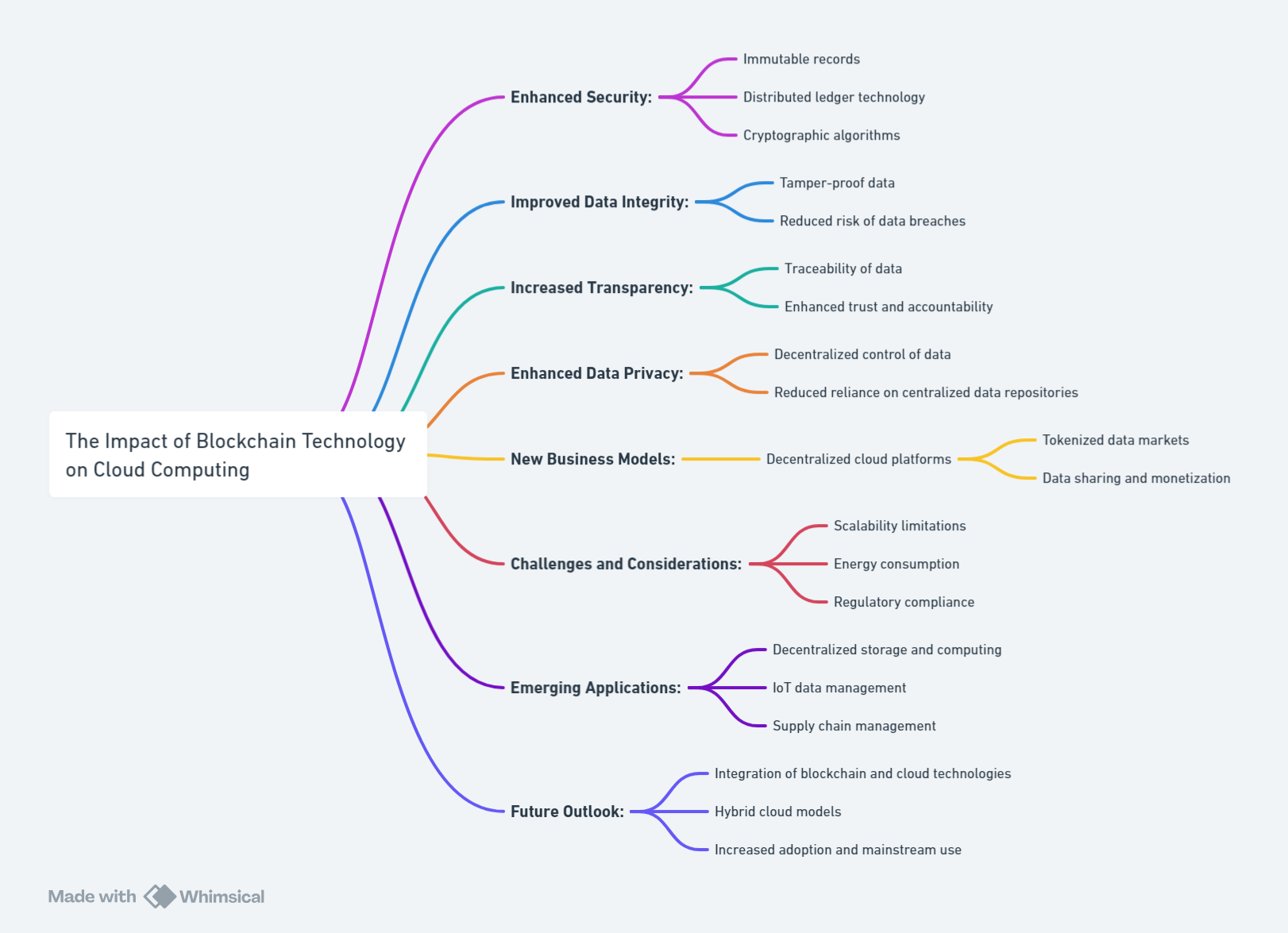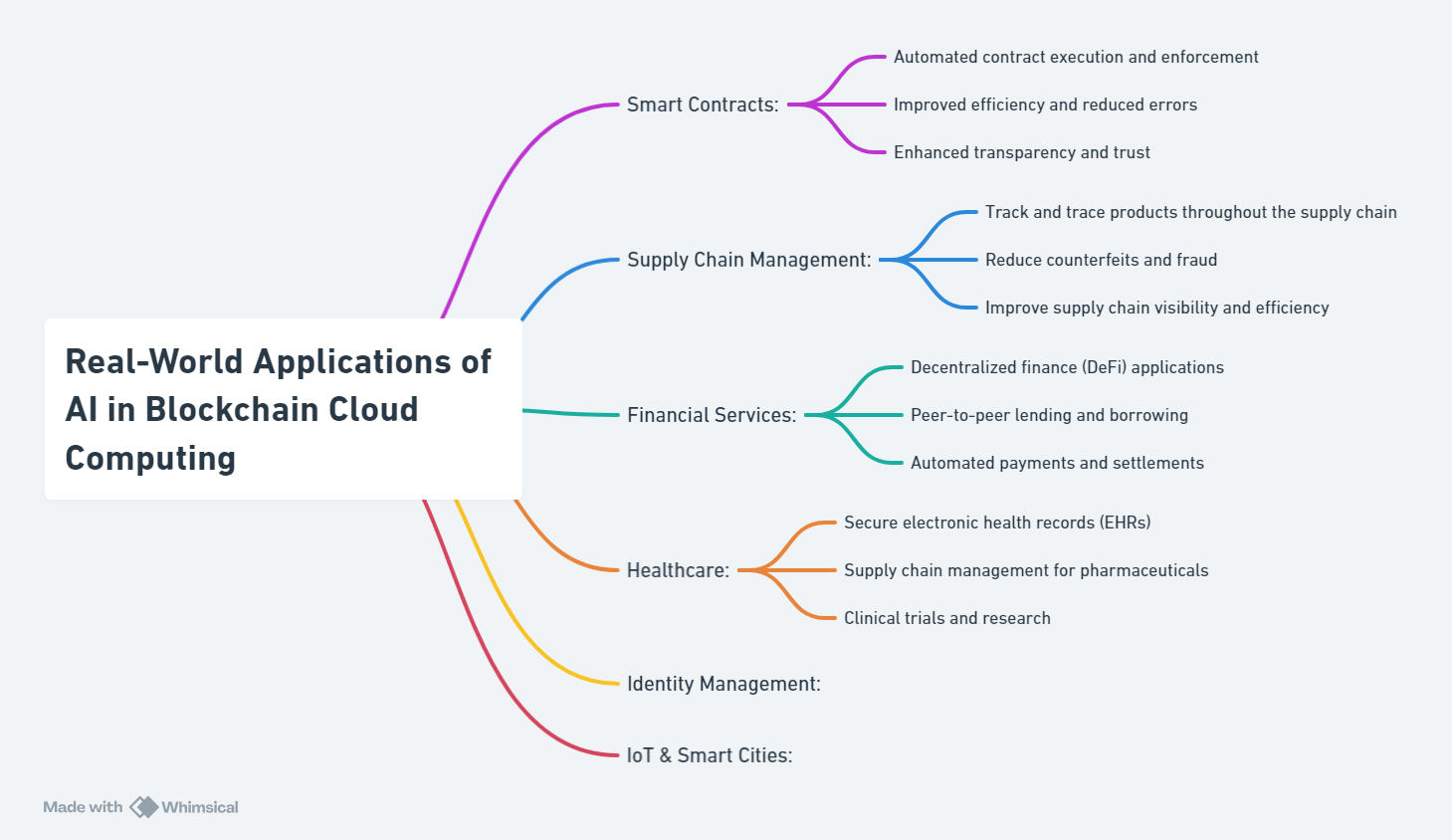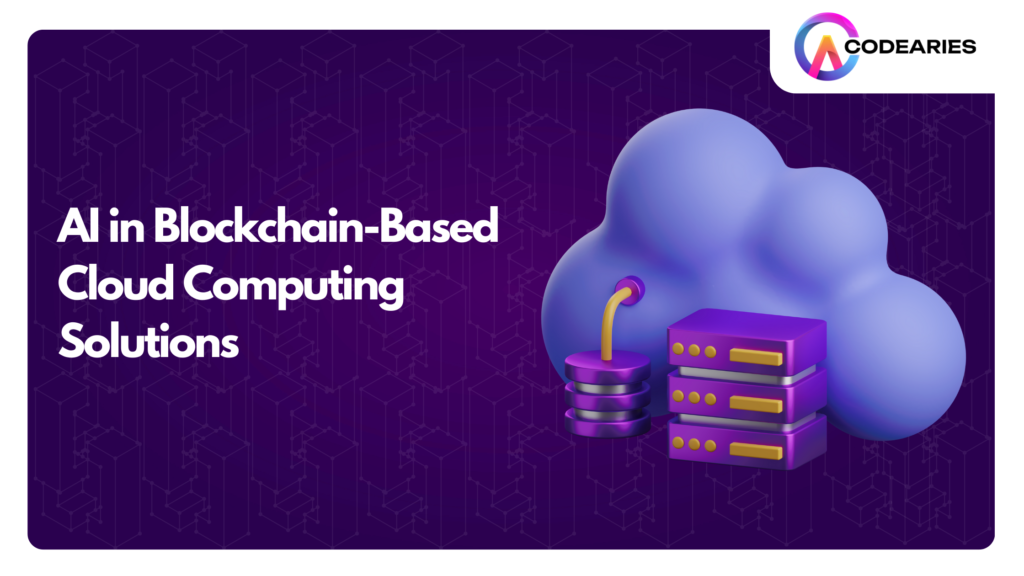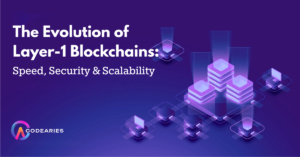The integration of artificial intelligence (AI) with blockchain technology is rapidly reshaping digital infrastructure, particularly in cloud computing. As demand for secure, scalable, and efficient cloud systems surges, combining AI’s analytical capabilities with blockchain’s decentralized framework offers a transformative solution. This integration enhances security, automation, scalability, and cost-effectiveness, paving the way for innovative applications across various sectors.
In this article, we will explore how the convergence of AI and blockchain is revolutionizing cloud computing, addressing key challenges, and unlocking new opportunities for businesses and industries.
AI in Blockchain-Enhanced Cloud Computing
The merger of AI and blockchain represents a significant evolution in cloud computing, addressing many challenges faced by traditional architectures, such as security vulnerabilities and centralized control. AI enhances cloud functionality by predicting system failures, optimizing workloads, and facilitating real-time decision-making. Meanwhile, blockchain ensures data integrity and security through its decentralized nature, creating a robust foundation for cloud operations.
Meeting Modern Cloud Needs
Businesses today require advanced cloud solutions capable of high availability, security, and scalability. The exponential growth of data has made efficient management essential. By leveraging AI to automate tasks and blockchain to secure data storage, organizations can meet these modern demands effectively. AI’s machine learning capabilities help in anticipating resource needs, while blockchain safeguards data integrity.
The Impact of Blockchain Technology on Cloud Computing
Blockchain technology and cloud computing represent two transformative advancements that hold the potential to reshape various sectors. Although they may initially appear distinct, their integration offers substantial benefits, particularly regarding decentralization and enhanced security. The global cloud computing market size was estimated at USD 602.31 billion in 2023 and is expected to grow at a CAGR of 21.2% from 2024 to 2030.
Decentralization Through Blockchain in Cloud Computing
- Decentralized Storage Solutions: By employing blockchain, it’s possible to develop decentralized storage systems that distribute data across numerous nodes, enhancing resilience against failures and attacks.
- User Empowerment and Data Control: Blockchain grants users greater control over their data by offering a verifiable record of ownership and access rights.
- Minimized Vendor Lock-in: Decentralized cloud solutions reduce dependency on specific vendors, offering users more flexibility and options.
Blockchain technology significantly enhances the decentralization, security, and transparency of cloud computing. By merging these two powerful technologies, organizations can develop more secure, efficient, and reliable cloud solutions.
The Role of AI in Cloud Computing
Artificial Intelligence (AI) is becoming increasingly integral to cloud computing, transforming how resources are managed and decisions are made across cloud infrastructures. By harnessing AI’s capabilities, cloud service providers can boost efficiency, lower operational costs, and enhance overall system performance.
Key Contributions of AI
AI significantly enhances cloud computing by enabling predictive analytics to anticipate resource needs, thus preventing performance bottlenecks. It facilitates smart resource allocation by dynamically distributing resources based on real-time usage, minimizing idle capacity and reducing costs. Additionally, AI automates routine tasks like resource provisioning and load balancing, allowing human operators to focus on strategic objectives while minimizing errors. It also detects anomalies, such as security threats or performance issues, facilitating swift corrective actions. Finally, machine learning continuously analyzes operational data to identify opportunities for further optimization of resource allocation strategies.
Practical Applications
- Auto-Scaling: AI facilitates automatic scaling of cloud resources in response to anticipated demand, ensuring peak performance while controlling costs.
- Load Balancing: AI algorithms intelligently distribute workloads across servers to maintain consistent performance and avoid server overload.
- Capacity Planning: AI assists providers in forecasting future resource requirements by examining historical trends and usage patterns.
- Cost Management: AI identifies ways to cut cloud expenses by optimizing resource usage, negotiating vendor pricing, and automating financial management tasks.
Strengthening Security Frameworks
Cybersecurity is a major concern for cloud computing platforms. By integrating AI and blockchain, these systems can achieve unparalleled security levels. AI can detect unusual patterns indicative of attacks, enabling immediate response actions. Blockchain’s cryptographic protections ensure data remains secure even under threat.This dual approach results in:
- Real-Time Threat Detection: AI analyzes large datasets to identify suspicious behavior.
- Immutable Records: Blockchain guarantees that data remains unalterable without detection.
- Automated Response Mechanisms: AI can initiate defensive measures upon detecting threats, enhancing overall security.
This comprehensive security model is particularly vital in sectors like healthcare, finance, and government, where safeguarding sensitive information is paramount.
AI-Driven Scalability Solutions for Blockchain-Based Clouds
As blockchain technology grows, scalability challenges become more pronounced, leading to congestion and inefficiencies. AI offers innovative solutions to enhance scalability.Sharding: AI can intelligently divide blockchain networks into smaller subchains, improving transaction throughput and reducing latency based on network conditions.Dynamic Consensus Mechanisms: AI can select the best consensus algorithm in real-time, opting for faster methods like Proof-of-Stake during high traffic and more secure options like Proof-of-Work when needed.Intelligent Transaction Batching: By analyzing patterns, AI can group related transactions, minimizing block creation and alleviating network congestion.Predictive Scaling: AI uses historical data to forecast network loads, enabling proactive scaling to prevent bottlenecks.Layer-2 Solutions: AI can optimize off-chain solutions, such as state channels, easing the main blockchain’s load and enhancing scalability.
Real-World Applications of AI in Blockchain Cloud Computing
The fusion of AI and blockchain provides innovative solutions across various sectors:
Supply Chain Management
- Transparency: Blockchain ensures a reliable record of product movements, while AI analyzes this data to optimize logistics and predict disruptions.
- Counterfeit Prevention: Blockchain authenticates products, and AI detects anomalies to combat counterfeiting.
Healthcare
- Secure EHRs: Blockchain allows safe sharing of electronic health records, with AI offering personalized treatment insights.
- Drug Tracking: Blockchain monitors pharmaceuticals to prevent counterfeiting, and AI identifies vulnerabilities in the supply chain.
Finance
- Smart Contracts: Blockchain automates agreements, and AI assesses risks to optimize contract terms.
- Digital Identity: Blockchain secures identities, while AI detects fraud.
Energy
- Energy Trading: Blockchain supports peer-to-peer trading, with AI optimizing consumption patterns.
- Grid Management: Blockchain facilitates efficient energy distribution, aided by AI analysis.
Internet of Things (IoT)
- Data Security: Blockchain protects IoT data, and AI identifies security threats.
- Smart Cities: Blockchain supports urban applications, while AI enhances resource efficiency.
Other Industries
- Gaming: Blockchain enables decentralized platforms, with AI personalizing player experiences.
- Real Estate: Blockchain streamlines transactions, and AI provides valuation insights.
Conclusion
The integration of artificial intelligence (AI) and blockchain technology is fundamentally transforming cloud computing, addressing significant challenges and unlocking new opportunities across various industries. By leveraging AI’s predictive capabilities and blockchain’s decentralized and secure framework, organizations can enhance efficiency, improve security, and create innovative solutions tailored to modern demands. From supply chain management to healthcare, finance, and beyond, the fusion of these technologies not only optimizes resource allocation and decision-making but also ensures data integrity and transparency. As these advancements continue to evolve, businesses that embrace this convergence will be better positioned to thrive in an increasingly digital landscape, harnessing the full potential of AI and blockchain to drive growth and innovation.
FAQs
What are the Future Trends of AI in Cloud Computing
The future of AI in cloud computing will focus on enhanced automation, predictive analytics, and improved security. Expect advancements in AI-driven resource management, enabling smarter workload distribution and real-time optimization. Additionally, AI will play a crucial role in enhancing user experiences through personalized services and more efficient data processing.
Will AI Replace Cloud Computing Jobs?
While AI may automate certain tasks within cloud computing, it is unlikely to completely replace jobs. Instead, it will shift the focus of roles, requiring professionals to adapt and upskill in areas like AI integration, data analysis, and strategic decision-making. New job opportunities will also emerge in managing and optimizing AI technologies.
Does Cloud Computing Have a Future?
Yes, cloud computing has a robust future as it continues to evolve with emerging technologies. The demand for scalable, flexible, and efficient computing solutions will drive innovation, making cloud computing integral to digital transformation across industries.
What is the Next Big Technology After Cloud Computing?
The next big technology after cloud computing is likely to be edge computing. This paradigm shifts processing closer to the data source, reducing latency and bandwidth use. It will complement cloud computing by enabling real-time analytics and processing for IoT devices and other applications requiring immediate data handling.







